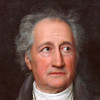“ We are so unfortunate that we can only take pleasure in a thing on condition of being annoyed if it turn out ill, as a thousand things can do, and do every hour. ”
Blaise Pascal, Pensées (1670). copy citation
| Author | Blaise Pascal |
|---|---|
| Source | Pensées |
| Topic | pleasure human condition |
| Date | 1670 |
| Language | English |
| Reference | |
| Note | Translated by W. F. Trotter |
| Weblink | http://www.gutenberg.org/files/18269/18269-h/18269-h.htm |
Context
“The great and the humble have the same misfortunes, the same griefs, the same passions; [84] but the one is at the top of the wheel, and the other near the centre, and so less disturbed by the same revolutions.
181
We are so unfortunate that we can only take pleasure in a thing on condition of being annoyed if it turn out ill, as a thousand things can do, and do every hour. He who should find the secret of rejoicing in the good, without troubling himself with its contrary evil, would have hit the mark. It is perpetual motion.
182
Those who have always good hope in the midst of misfortunes, and who are delighted with good luck, are suspected of being very pleased with the ill success of the affair, if they are not equally distressed by bad luck;”
source


